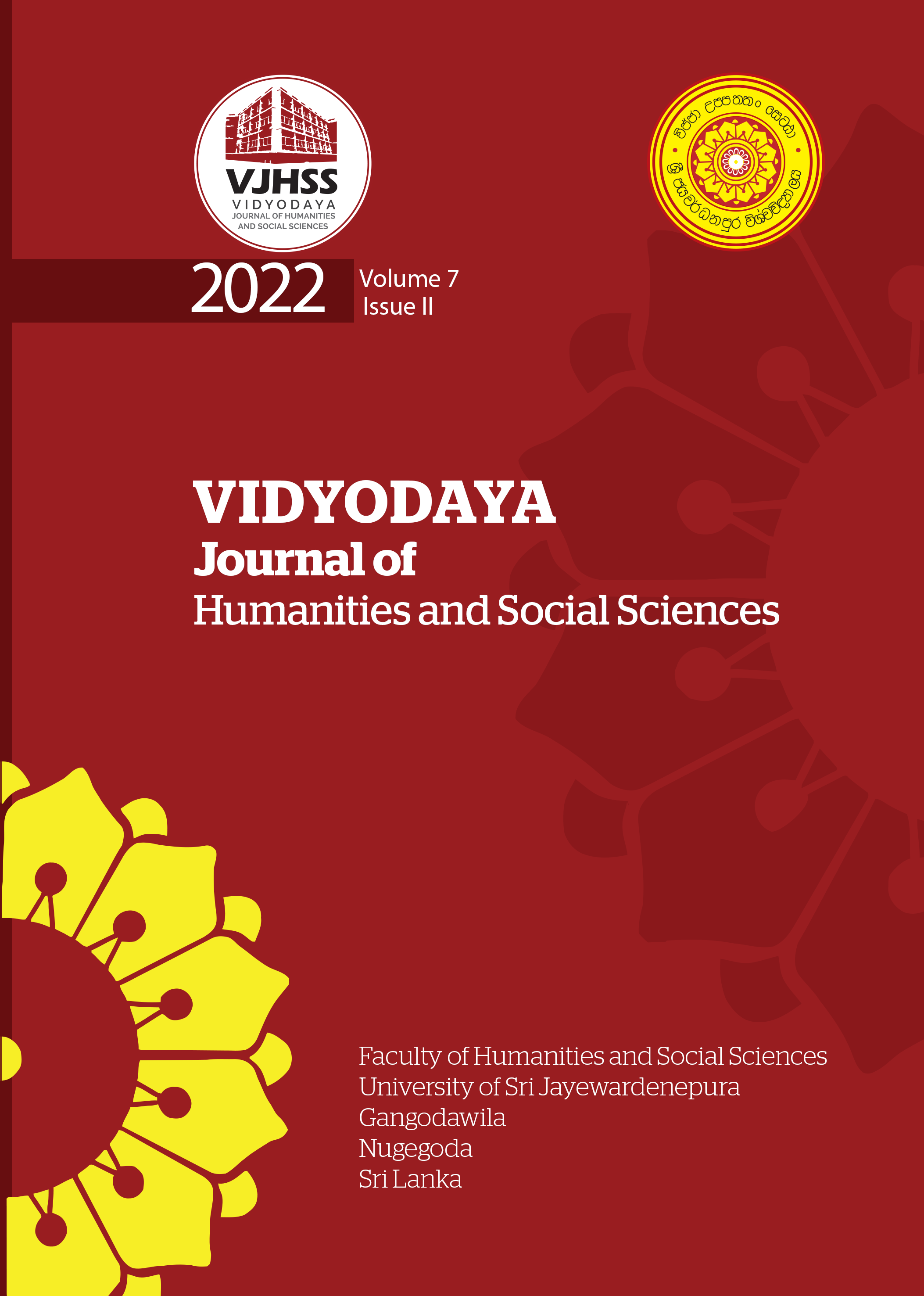An Analysis of Covid-19 Global Pandemic and Sri Lankan Aboriginal Community with Special Reference to Bourdieusian Approach
Abstract
It seems that Sri Lankan aboriginal community had to go through significant hardships during the Covid-19 outbreak. This particular research was conducted in Rathugala aboriginal village in Monaragala district mainly as a qualitative research. The whole research was driven by four major objectives; investigating the social burdens that Rathugala aborigines had to undergo in the pandemic outbreak, the efficacy of the government-sponsored redressing mechanism towards the Rathugala aborigines, the coping strategies employed by Rathugala aborigines to face the unexpected pandemic and its consequences and understanding aforesaid factors through a Bourdieusian perspective. A sample comprising 20 respondents (N=20) was selected under the purposive sampling and sample size was determined by the data saturation point. Data analysis was predominantly carried out as a thematic analysis with a Bourdieusian Approach. The research revelations are as follows; Closing the entrances to the aboriginal village seemingly brought most of the income earnings of the Rathugala aborigines to a halt. Subsequently, it caused the proliferation of the decades-old chronic poverty in Rathugala aboriginal village. Some aboriginal youth have been involved in illegal means of income-earning for their survival as government subsidizing was late and not systematic. The lack of social capital in the Rathugala aboriginal community has made them more deprived of gaining social support from outside of their community. Being aborigines has created a pathetic social perception in the mindset of both the general public and state officials and it might have been a barrier for Rathugala aborigines in the pandemic time when gaining state support.



